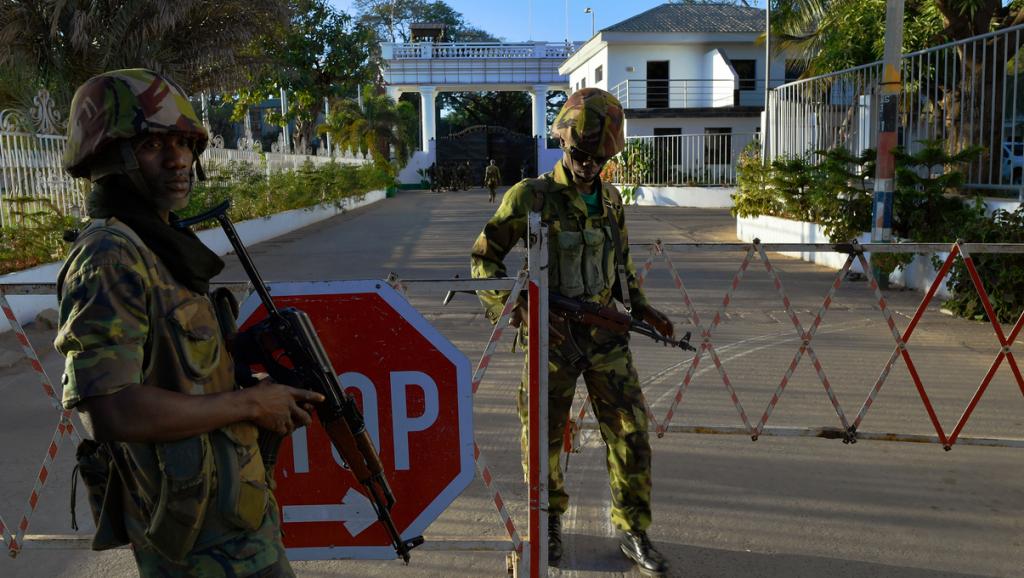
In my previous publication I took a peek behind the curtain of the PPP government era, illustrating the irresponsible phenomenon of that government’s marginalisation of its national security forces, the Gambia National Army (GNA) in particular, in preference to Nigerian military forces.
It was proven to be an ineffective conception that no independent country in Africa and beyond would tolerate or enact except in the Gambia. I had to reflect on that in order to delineate its overwhelming similarity to how the current Coalition government in the Gambia is repeating the same blunder by alienating the GNA in favour of foreign contingents, understood to be predominantly Senegalese dressed in ECOMIG uniforms.
The PPP government, in denial had fatally held onto the security experiment, undergoing series of trials and errors from 1981 up to 1994 when all hell broke loose, thrusting the GNA into a suicidal mutiny or coup d’etat.
It is therefore rather unsettling not to hear the alarm bells being loudly sounded to this inexperienced government or see any definitive measures explored to reverse or even abandoned this treacherous policy that in the past led to undesirable consequences.
I cannot imagine coup d’etat happening in the Gambia in 2020, although in 1992 the conventional wisdom mooted was the erroneous notion that the country will never succumb to military rule because of a confidential security treaty effectuated between President Sir Dawda Jawara of the Gambia and his “friend” and counterpart, Nigeria’s head of state, General Ibrahim Babangida.
The Nigerian general had provided Sir Dawda with a fine military unit with the assurance that no matter what, Nigeria was always going to protect his government from military coups. I will later explain why Sir Dawda asked for such military assistance from Nigeria and not our closest neighbour Senegal who are now doing it for President Barrow. What did Barrow know better that Jawara didn’t?
Then in 1993, General Sani Abacha unexpectedly replaced Sir Dawda’s “friend”, General Ibrahim Babangida as head of state of Nigeria precipitating a disruptive repercussion in the bilateral treaty protecting the Gambia government.
The 1994 coup was after all imputed to the negative effect of the change in the executive leadership of the Nigerian government.
It further taught us the fragility in two heads of state impulsively striking a bargain on a security protocol whose terms and conditions are kept confidential to themselves alone, excluding their law makers and enforcers. Nigeria was at the time under military rule when strong generals led governments with unhindered powers and dictatorial tendencies.
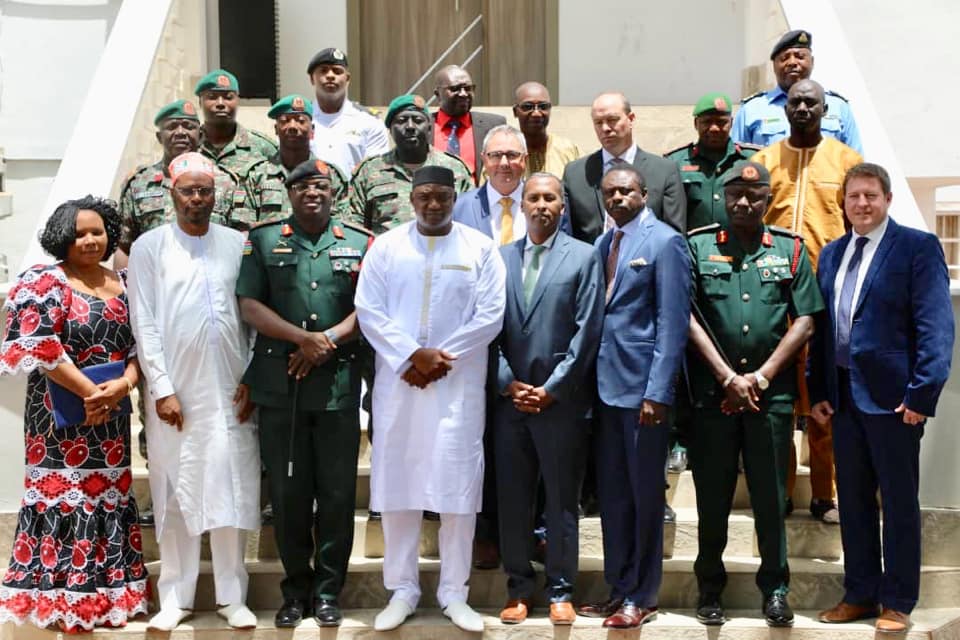
Sir Dawda, after thirty years in power with no sign of ever quitting acted like one. We may not want to admit it, but he was also a typical civilian self-perpetuating president. The Wolofs go with the saying that, “show me your friends and I will tell your habit”. May his soul rest in peace.
Indeed, the agreement between Sir Dawda Jawara and Ibrahim Babangida was not necessarily sanctioned by the other complementary branches of their two governments-the legislature and judiciary-but restricted to the executives and strictly to the understanding of the two heads of state.
For that reason, General Sani Abacha who in 1993 replaced General Babangida came caring less about what his predecessor agreed with the Gambia and showed no enthusiasm in finding out because of the bad chemistry that had developed between him and President Jawara.
In the middle of General Abacha’s disruption of the security foundation established in the Gambia, the GNA junior officers exploited the hiccup and overthrew the PPP government.
I am honestly concerned but not necessarily asserting that the exact same repercussions will eventually occur in the current Macky Sall-Adama Barrow fraternisation. But why not concerned after witnessing President Macky Sall and President Adama Barrow rubbing elbows and calling each other “brothers” communicating only in “our native dialect Fullani” and adopting a confidential security pack that brought into the Gambia Senegalese combat troops in relatively large numbers for the sole purpose of protecting the Gambian president?
I hope I am wrong in thinking that their agreement is only ratified at the executive level of the two governments and excluded the legislatures and judiciaries of the two governments.
Are we sure of the accord passing the test of time in the absence of President Mackey Sall or President Adama Barrow or both of them? Am I alone in this feeling that we are again treading on thin ice? Don’t get me wrong, I don’t think coup d’etat can ever happen in the Gambia again because of what I know.
You see, at the time the young GNA officers seized power in 1994, military governments were still globally considered normal and acceptable. Actually in 1994 apart from the Gambia all the other three Anglophone countries in West Africa-Nigeria, Ghana and Sierra Leone-were under ruthless military rule ostensibly tolerated by their citizenries and to a great extent by the international community in the same manner the Armed Forces Provisional Ruling Council (AFPRC) military government of the Gambia was given a pass when they seize power that same year.
Every new government, military or civil, has a seductive justification for being the best to govern a country and usually enjoy broad support from the masses the majority of whom Adolf Hitler once said are ordinary followers willing to support any kind of government or leadership if the price is right and the message romantic.
But coups as instrument of unconventional political change were first introduced in Africa by the Western powers in collusion with the post-colonial armies they left behind with our inexperienced new governments. Along with the new national flags and administrations ceded to the new African leaders were the Victorian armies characterized by a strategy to expand European colonisation and exploit any valuables in the continent for the endless development of the over-developed West.
These armies, owing to decades of training and indoctrination, remained blindly loyal to their founding fathers well after independence with minimal respect for their newly enthroned “African ‘Mansoos’” or kings. It enabled the colonialists to effectively use these armies to organise the first coups against defiant post-colonial or Neo-colonial governments.
At the height of the cold war in the 60s and 70s Western nations consistently manipulated and incited African armies into toppling one independent government after another that showed sympathy or attraction to socialist and communist ideologies.
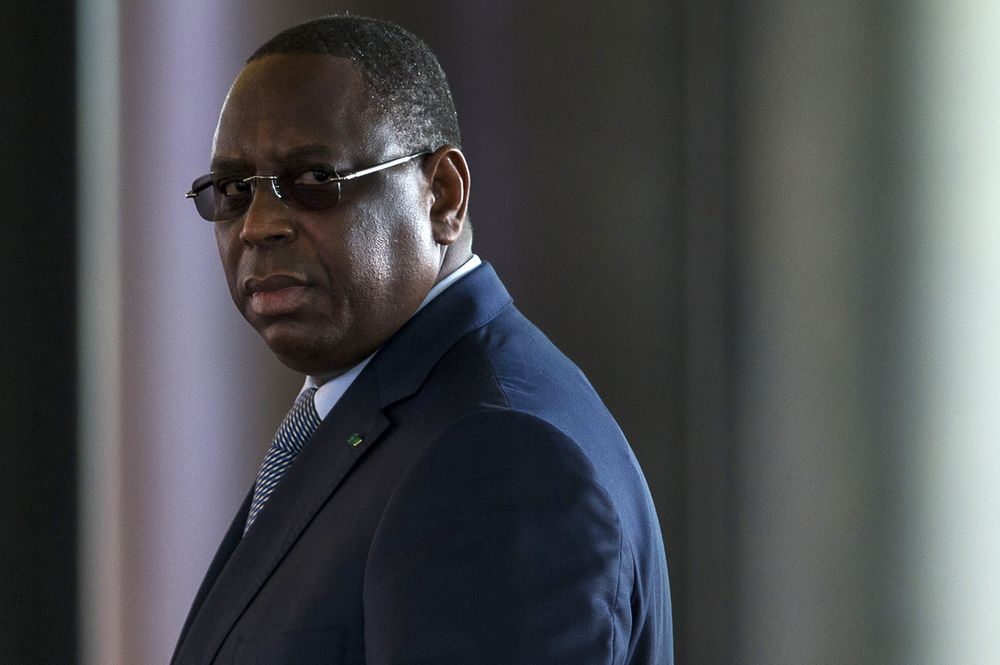
It was later proven beyond doubt that the Europeans and the American CIA in their first wave of toppling dissenting African leaders played a significant part in the assassination of Patrice Lumumba of the Democratic Republic of the Congo on January 17, 1961 and had their DNA all over the conspiracy that overthrew the government of Dr. Kwame Krumah of Ghana on February 24, 1966.
Both Lumumba and Nkrumah were famous for their strong anti-colonial sentiments, passionately committed to the struggle to free Africa from the yolk of colonialism and to unify the continent into one state. Brilliant forefathers.
The toppling and assassination of President Thomas Sankara of Burkina Faso on October 15, 1987 epitomised France’s complicity in inciting African national armies into overthrowing popular Pan-African leaders.
In time however, emboldened by their mastery and perfection of the methodology of coups and fueled by their personal political ambitions the African soldiers started seizing the initiative from the masters and staging coups for their own benefits.
But just when they started getting conformable in the political racketeering the final collapse of communism in 1991 as a global threat to capitalism, fostered along the erosion of the appeal of military rule all over Africa. It was a quantum leap to see Nigeria and Ghana, once the cradles of Africa’s military governments successfully transitioning to genuine democratic rule in 1999 and 2001 respectively.
Soberly compiled constitutions couched with entrenched clauses on presidential term limit to indefinitely eradicate self-perpetuating rule by including necessary checks and balances helped tremendously in Nigeria and Ghana’s success.
However, these new democratic African governments continued to maintain healthy relationship with their militaries, according them the respect they deserved regardless of their checkered history of bloody coups and counter coups. Ghana, Guinea, Nigeria, Sierra Leone, Mauritania, name it, all had their nightmarish experience of military governments; but where these countries differed from the Gambia after transitioning to civilian government was the avoidance of hiring foreign forces for protection while embarking on a systematic destruction of the images and confidence of their national security forces.
To honestly hold accountable the “masterminds”and perpetrators of all horrible coups for their devastating human rights violations to African societies, we should not overlook the culpability of our colonial masters for inciting coups that over the decades killed some of Africa’s best leaders, fermented the deadliest genocidal civil wars and definitely stalled almost all our socioeconomic progress by centuries back.
But who today among our puppet leaders will dare to question the masters for those crimes? The ICC was ban in America when they started thumbing their noses in America’s war crimes in Afghanistan. Did you know?
Notwithstanding, the APRC government in 2016, by character and function still resembled more of a military government than a modern African democracy at a time when most African counties were on the fast lane to democratisation, bypassing all traffic jams caused by the parasites, worried about life after the regime.
Can one just for a moment also remember how President Sir Dawda Jawara was shamelessly dissuaded by his political parasites in 1992, when he presented the opportunity for Gambians to let him step down after thirty years in power and allowed the next generation of the country’s political stars to carry on his baton from where he wanted to pass it?
That was a perfect chance for Gambia to beat many African countries such as Nigeria and Ghana to the emerging quest to end self-perpetuating rule for veritable democracy. The country could have grasp the opportunity, encourage the old man to retire honourably, allow the vice president to serve a transitional period, draft a new constitution limiting presidential tours of duty to two five-year terms, conduct free and fair elections for a new president and save the nation from the 1994 coup.
Unfortunately, Sir Dawda was in the end made to believe that the Gambia couldn’t survive as a nation without his leadership and he seemed to have bought into the sycophancy. Hello Mr. President Adama Barrow!
Anyway I also think that President Jammeh could have at one point frictionlessly chaperone the Gambia into the family of nations rapidly becoming democratic by emulating his colleagues like Ghana’s Flight Lieutenant Jerry Rawlings and Nigeria’s General Olusegun Obasanjo who despite their adverse legacies of participating in coups and counter coups helped and cooperated eminently with their law makers in the democratisation process of their countries.
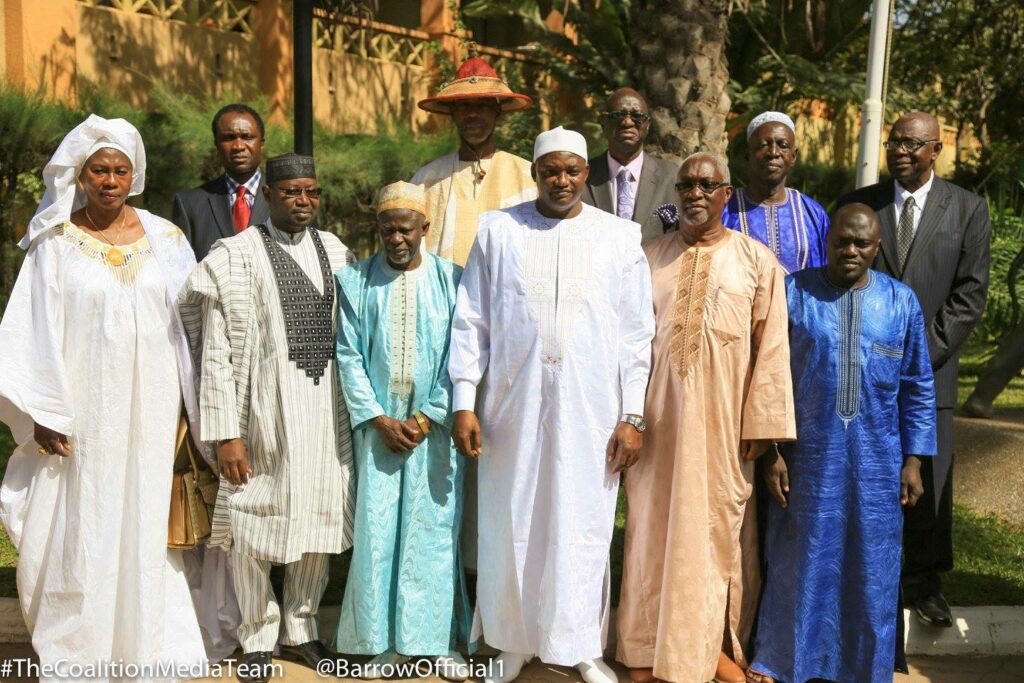
As a matter of fact in his inaugural speech after overthrowing the PPP government in 1994 Chairman Jammeh of the AFPRC government emphatically assured the Gambian population among other things that the Gambian constitution was never again going to allow a president to serve more than two five-year terms in office.
As a contributor to those who crafted that speech in 1994 before Chairman Jammeh stamped his approval to the final draft, I still hold that theory dearly in my heart that modern presidents whether in Africa or elsewhere should should not remain in office for more than ten years, lest they turn into dictators.
Anyway President Barrow said it all about politicians in a recent television interview when he literally insinuated that when campaigning for votes, politicians can promise the electorate anything not subjected to fulfillment after victory.
But unlike in the Gambia, the Nigerian and Ghanaian stakeholders responsible for their successful transition, assembled and tasked their nations’ best minds for the job, raised adequate resources and allowed them ample time to study and develop inclusive constitutions free of political hazards and foreign interference.
Incidentally, the Gambia’s case in 2016 progressed precariously before disintegrating woefully. I will start my next discussion from the Gambia’s transitional MOU, how it was conceived and when Senegal ultimately hijacked it from the founders, the Gambians and who helped in that treachery.
I only hope our Gambian politicians will soon wake up to this reality, desist from squabbling over trivial matters and aggressively embark on terminating the illegal siege of the country by Senegal under the guise of ECOMIG. The country will never be stable unless and until the siege ends.
To be continued.
Samsudeen Sarr
New York City









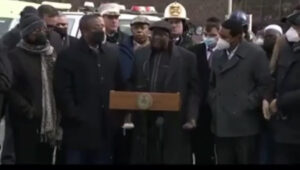
Recent Comments